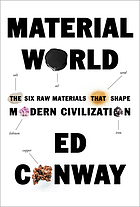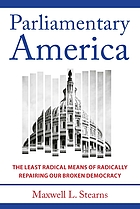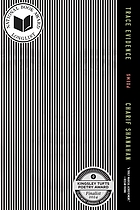Here is The Friday List! Every week, new books are arriving at RLB Library and to keep you up-to-date on what has come in, we’ll be posting the most recent 30 days of arrivals every Friday. The link below will take you to a catalog listing so that you can explore and find titles that interest you. Be sure to check back regularly to see what else has arrived!
THE FRIDAY LIST
If you want some ideas on what to read, here are some highlights, which can be found in the New Books kiosk by the information desk on the first floor of the library (eBooks can be accessed through the RLB website):

Material world : the six raw materials that shape modern civilization, Ed Conway, 2023
The story of civilization from an entirely new vantage point-the six raw materials that have shaped and will continue to shape humanity’s destiny. Sand, iron, salt, oil, copper and lithium: The struggle for these fundamental materials has created empires, razed civilizations, and fed our ingenuity and our greed for thousands of years. It is a story that is far from finished. Though we are told we now live in a weightless world of information, we dug more stuff out of the earth in 2017 than in all of human history before 1950. And it’s getting exponentially worse. To make one bar of gold, we now have to dig 5,000 tons of earth. For every ton of fossil fuels, we extract six tons of other materials-from sand to stone to wood to metal. Even as we pare back our consumption of fossil fuels we continue to redouble our consumption of everything else. Why? Because these ingredients are the basis for everything. They power our phones and electric cars, build our homes and offices, enable the printing of our books, and supply our packaging. Our modern world would not exist without them, and the hidden battle to control them will shape our future. This is an epic journey across continents, cultures and epochs that captures the astonishing extent to which humanity’s prosperity is intertwined with what we extract from the earth and adapt to our needs and desires. It is a story of our past and future, from the ground up.

Parliamentary America : the least radical means of radically repairing our broken democracy, Maxwell L Stearns, 2024
Americans face increasingly stark choices each presidential election and a growing sense that our government can’t solve the nation’s most urgent challenges. Our eighteenth-century system is ill suited to our twenty-first-century world. Information-age technology has undermined our capacity to face common problems together and turned our democracy upside down, with gerrymanders letting representatives choose voters rather than voters choosing them. In Parliamentary America, Maxwell L. Stearns argues that the solution to these complex problems is a parliamentary democracy. Stearns considers such leading alternatives as ranked choice voting, the national popular vote, and congressional term limits, showing why these can’t solve our constitutional crisis. Instead, three amendments—expanding the House of Representatives, having House party coalitions choose the president, and letting the House end a failing presidency based on no confidence—will produce a robust multiparty democracy. These amendments hold an essential advantage over other proposals: by leaving every member of the House and Senate as incumbents in their districts or states, the amendments provide a pressure-release valve against reforms threatening that status. Stearns takes readers on a world tour—England, France, Germany, Israel, Taiwan, Brazil, and Venezuela—showing what works in government, what doesn’t, and how to make the best features our own. Genuine party competition and governing coalitions, commonplace across the globe, may seem like a fantasy in the United States. But we can make them a reality. This rare book offers an optimistic vision, explaining in accessible terms how to transform our troubled democracy into a thriving parliamentary America.

Trace evidence : poems, Charif Shanahan, 2023
In Trace Evidence, the urgent follow-up to his award-winning debut Into Each Room We Enter without Knowing, Charif Shanahan continues his piercing meditations on the intricacies of mixed-race identity, queer desire, time, mortality, and the legacies of anti-Blackness in the US and abroad. At the collection’s center sits “On the Overnight from Agadir,” a poem that chronicles the poet’s survival of a devastating bus accident in Morocco, his mother’s birth country, and ruminates on home, belonging, and the mysteries of fate. With rich lyricism, power, and tenderness, Trace Evidence centers the racial periphery and excavates the vestiges of our violent colonial past in the most intimate aspects of our lives. In a language yoked equally by the physical and metaphysical worlds, the poet articulates the need we all share for true intimacy and connection, and proves, time and again, that the true cost of our separateness is the love that our survival requires.

Until August, Gabriel García Márquez, 2024
Sitting alone beside the languorous blue waters of the lagoon, Ana Magdalena Bach contemplates the men at the hotel bar. She has been happily married for twenty-seven years and has no reason to escape the life she has made with her husband and children. And yet, every August, she travels by ferry here to the island where her mother is buried, and for one night takes a new lover. Across sultry Caribbean evenings full of salsa and boleros, lotharios and conmen, Ana journeys further each year into the hinterland of her desire and the fear hidden in her heart. Constantly surprising, joyously sensual, Until August is a profound meditation on freedom, regret, self-transformation, and the mysteries of love–an unexpected gift from one of the greatest writers the world has ever known.